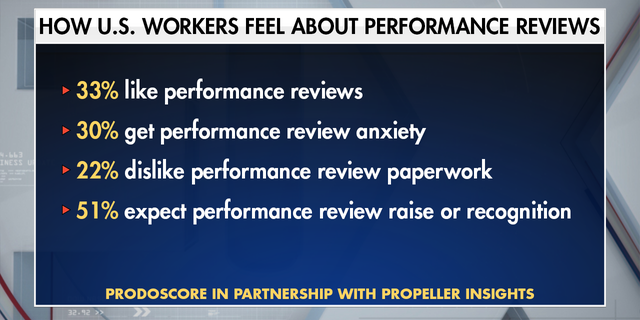
This comes ahead of the U.S. nonfarm payrolls report out Friday.
Four market strategists discuss what they’re watching now.
Doug Cohen, managing director of Fiduciary Trust International, says more stimulus is needed.
“I think almost everyone knows at a gut level that when you have the kind of stimulus that we’ve had — both monetary stimulus and fiscal stimulus — there are probably going to be unintended consequences down the road, and I’m quite confident that we’re going to have to face those. Unfortunately, the damage that’s being done to the economy, and you don’t see it as much in the S&P 500, but when you look at small businesses throughout the country and you think about the construction that’s being done and how difficult it’s going to be to revive those businesses, essentially what’s going to happen is that we’re going to have to print even more money.”
Victoria Fernandez, the chief market strategist at Crossmark Global Investments, sees falling participation in the market.
“We have to wait and see what happens with this stimulus package. If we don’t get some more unemployment insurance to help support those that have been furloughed or unemployed, then that demand question is really going to be key to see how the economy can move forward. Obviously, we have a handful of stocks that have really been driving this market. And that’s all well and good to an extent, but we’re missing that breadth that we started to see about a month ago. We’re looking at stocks that are surpassing their 20-day moving average. That percentage is really coming down.”
Jim Paulsen, Leuthold Group chief investment strategist, sees improvement on the horizon.
“People think about sugar high. But the sugar only really works for stocks if it ultimately is going to work for the economy as well. And I think the stock market is reflecting what’s going to happen to the economy. There’s just so much to improve, in part because it’s been so bad. We had a record-setting unemployment rate. We had a record-setting inventory drawdown. We had a record-setting rise in the personal savings rate. We had a really nasty earnings decline. Think about those going back to some sense of normal and what that’s going to do for the stock market down the road, so I think there are some good things that could keep this ball going.”
Glenn Hutchins, chairman at North Island, gives credit to the Fed for its liquidity injection.
“Some parts of the economy are having a ‘good pandemic.’ And the technology industry ... which has more capacity to do things virtually, is obviously taking a huge amount of market share all across the economy, everything from what we’re doing right now with remote communication all the way to retail. Very large parts of the economy are not doing as well. The stock market ... it’s a day-to-day thing, so you can have good days and bad days ... But remember one of the major things that have happened in this crisis, and it’s something the Fed, I think, did very well — not for this purpose but for purposes of addressing the underlying economy — was to put a huge amount of liquidity in the markets.”
Democratic and Republican party leaders are making little progress in their talks for another stimulus package, which would include another round of stimulus checks and enhanced jobless benefits. And if they don't make progress or a deal by the end of the week, they might not pass anything, White House chief of staff Mark Meadows told reporters Wednesday.
“I’ve become extremely doubtful that we’ll be able to make a deal if it goes well beyond Friday," Meadows said before going into a Wednesday meeting with Democratic and Republican leaders to try again to hash out a stimulus deal.
The White House, Senate Republicans and House Democrats all support sending another round of $1,200 stimulus checks to Americans, however, they can't come to an agreement for the broader stimulus bill in which the checks would be included. Democrats want more money for state governments and unemployment benefits, while Republicans want the extra $600 weekly federal unemployment benefit—which expired the week of July 25—reduced and COVID-19 lawsuit immunity for businesses.
“They [GOP leaders] repeated again today which is if there's not a deal by Friday, there won't be a deal. At some point, you have to set a deadline or just continue this Kabuki dance every day and nobody wants that," Senator Roy Blunt, R-MO told CNN Wednesday.
Senate Majority Leader Mitch McConnell said Wednesday that he'll delay the start of the August recess and remain in session next week. That would provide the time needed to pass legislation if both parties come to an agreement this week.
On Wednesday, House Speak Nancy Pelosi was more upbeat, telling MSNBC that she's "confident that we will have an agreement."
White House officials have suggested the distribution of stimulus checks could be sped up more, given the system is already in place. However, until the bill passes and the U.S. Department of the Treasury issues guidance, nothing is certain.
More than half of workers in the U.S. think competition among colleagues motivates them to do better at their job, according to a new study commissioned by sales performance and time management software company Prodoscore.
In a sample of 1,000 respondents across different industries, 67% said they were interested in knowing how they stack up next to their colleagues.
Particularly, workplace competition was high for people who work in sales, Prodoscore’s Chief Executive Officer Sam Naficy told Fox News. "Salespeople are inherently competitive,” he said. “Whether in an office or at home, they compete from a performance standpoint each month, each quarter, each year."

(iStock)
Although most workers would like to know how they compare to their colleagues, not all are fans of annual performance reviews. In fact, less than 50% of respondents said they found performance reviews to be helpful in setting up job success in the workplace and only 33% said they are excited to participate in the process.
Meanwhile, 30% of the polled workers shared that performance reviews make them feel anxious or pressured while 22% shared that they feel frustrated with the workload associated with self-evaluations and other review documents.
Sixty-seven percent of workers said they believe “active coaching” from their manager is more helpful than annual performance reviews and 54% clarified that they would actually be interested in replacing these reviews with coaching and regular engagement with higher-ups in the workplace.

When performance reviews do take place, 51% said they expect a raise or recognition for their work. At the same time, 53% shared that they feel frustrated when their efforts go unrecognized.
As of July, 77% of the survey’s respondents are currently working from home at least part of the time. This is up from 61% Prodoscore had on record from a previous survey that took place before the coronavirus pandemic. The work from home shift has notably made employees more interested in improving their performance, according to the software company.
Thirty-six percent of workers shared they think they are more productive when they work from home versus the 20% who think they are less productive in a work from home setting and 44% who think they aren’t experiencing a difference in productivity.
The national unemployment rate went down to 11.1% in June, according to the most recent economic news release from the U.S. Bureau of Labor Statistics. This is down from the coronavirus-related record high of 14.7% the government agency saw in April.

